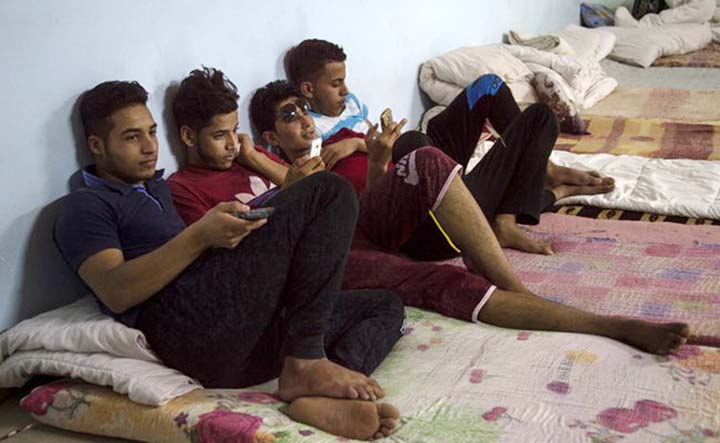
AFP, Debaga :
Adel, 15, hasn’t seen his parents for the past nine months, but that was the price to pay to escape the brutal rule of ISIS group terrorists in his northern Iraqi hometown.
“I miss my family, nine months is too long,” said the teenager, among hundreds of youngsters separated from their parents because of ISIS and the months-long battle that has expelled the terrorists from Mosul, the main city of northern Iraq.
Adel remembers the long trek on foot out of Hawijah-a town in Kirkuk province that is still held by ISIS-as he and others made their way to Iraq’s autonomous Kurdish region. “We walked all night, around 14 hours,” said the teenager.
He now lives in a camp for the displaced in Debaga region, southeast of Mosul, where he has been reunited with one of his brothers and some cousins.
Adel is not from the area, but the battle for Mosul has displaced hundreds of thousands of other civilians, many of whom now reside in camps near Iraq’s second city.
According to the UN’s children agency, UNICEF, more than 1,000 children under the age of 18 have been separated from their parents.
Adel is cared for by the Terres des Hommes Italia, a children’s aid organisation, and is among 17 teenagers being sheltered by the charity, which organises English and computer science classes and sports activities. “The teachers treat us well. It’s like I’m at home here now,” said Adel.
In the common room, boys wearing T-shirts took turns to play ping pong or table football. Others lay on mattresses in the dormitory next door busy with their mobile phones, while in the background Arab music blared out at full volume.
In the kitchen, three teenagers were helping the head cook prepare the day’s lunch, and they were learning how to bake bread.
Six months after Adel fled Hawijah, his parents also left for a camp for the displaced in Kirkuk province.
“The only way to contact them is by phone and sometimes on Facebook,” said Adel.
He hopes to go visit them after September, when he is due to resit his school exams after failing at a first attempt.
“There are just over 1,000 children who are separated and unaccompanied,” UNICEF’s Maulid Warfa said after a tour of the Mosul area.
His visit to eastern and western Mosul came after the Iraq government declared the city “liberated” from the terrorists who overran it three years ago.
“Separated means they are with relatives, but not their parents. Unaccompanied means they are all alone, and this group is our top priority,” said Warfa.
He said UNICEF was working to trace the families. “If we can’t find them, the courts will put them in a state institution.”

